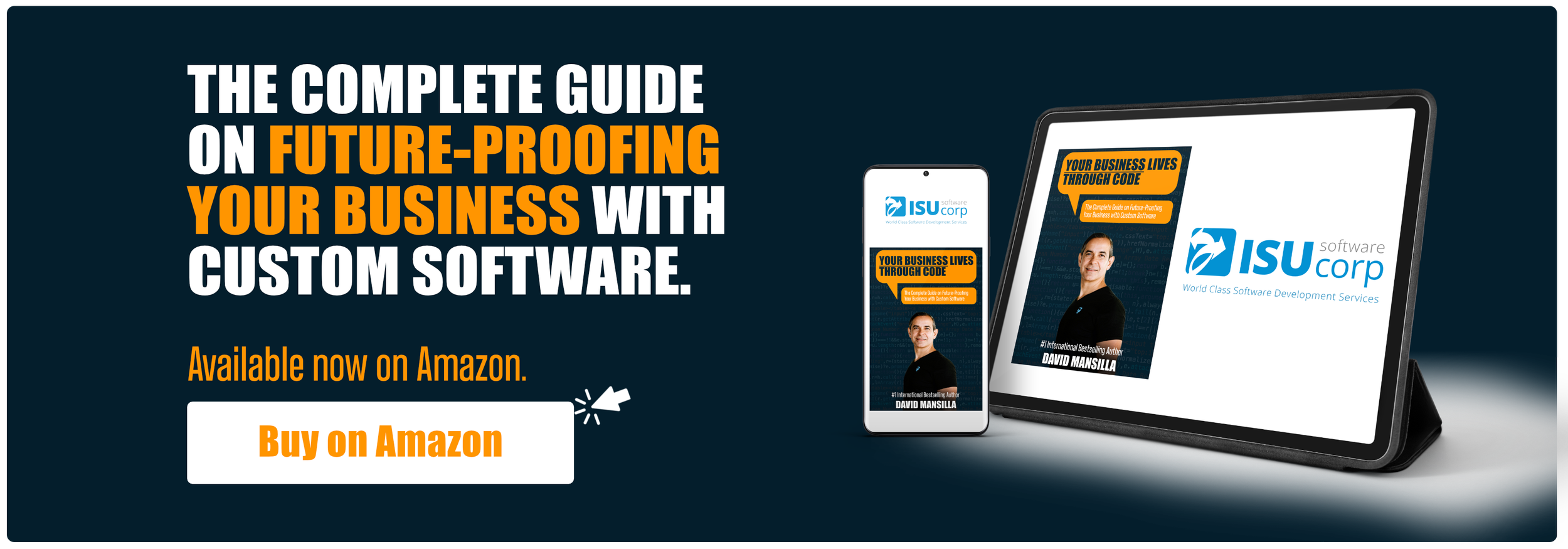Persistence and Patience: Managing People Problems as a Tech Leader
Manuel Pedroza
CIO at Clinica Sierra Vista
In the realm of technology leadership, the journey toward finding a career path that contributes meaningfully to the community often leads to a profound sense of fulfillment. Leaders such as Manuel Pedroza, CIO at Clinica Sierra Vista, exemplify this phenomenon. Pedroza, like many others, discovered his niche in healthcare technology after an extensive career in various sectors, including consulting, managed services, and logistics. The transition into healthcare allowed him to leverage technology to address critical challenges and make a tangible impact on people's lives. This shift not only brought about a sense of professional satisfaction but also highlighted the vast potential of technology to transform healthcare, providing endless opportunities for innovation and improvement. Through their work, leaders in technology who engage with community-centric careers experience exponential growth in their sense of purpose and fulfillment.
The Role of Technology in Modern Healthcare
During the early stages of his career, Manuel Pedroza, CIO at Clinica Sierra Vista, faced considerable challenges when introducing technology into healthcare settings. Many healthcare professionals were skeptical about the necessity of incorporating technology into their workflows, often feeling that it reduced them to clerical tasks tied to computer screens. Pedroza recognized the need to engage directly with physicians, understanding their pain points, and demonstrating the tangible benefits technology could offer. Through collaboration and clear communication, he illustrated how technology could streamline processes, enhance patient care, and ultimately lead to better outcomes.
Pedroza’s efforts, along with those of his peers, have significantly shifted the perception of technology in healthcare. The integration of data and informatics has revolutionized patient care, enabling providers to operate on a scale that was once unimaginable. By leveraging data, healthcare professionals can identify patterns and insights that improve decision-making and patient outcomes. Despite the ongoing challenges, the advancements in healthcare technology are evident. Pedroza remains enthusiastic about the future, recognizing that technology continues to transform patient care, making it an exciting and rewarding time to be involved in the healthcare industry.
Guidance and Growth: The Influence of Mentors on Career Progression
Manuel Pedroza, experienced significant personal and professional growth by leveraging the opportunities and support around him. Early in his career, he faced traumatic and challenging situations that could have hindered his progress. However, he chose to view these challenges as opportunities for growth. A key factor in his development was the presence of strong leaders and mentors who provided guidance and shared their extensive knowledge. These seasoned professionals, including numerous CIOs, directors, and VPs across California and the nation, offered invaluable insights that helped Pedroza navigate his career. Their openness and willingness to share dos and don'ts played a crucial role in shaping his approach to work and leadership.
Pedroza acknowledges that his success is not his alone but a testament to the collective support and mentorship he received. The wisdom and advice from experienced leaders allowed him to develop strategies and solutions that he might not have discovered independently. This network of mentors contributed significantly to his ability to grow and excel in his role. Pedroza's journey underscores the importance of community and mentorship in achieving professional success. He emphasizes that having good mentors and a supportive network is essential for anyone aspiring to succeed in their career, demonstrating how collective effort and shared knowledge can lead to remarkable achievements.
Navigating People Problems: A Leader's Biggest Challenge in Technology
In the realm of technology leadership, the most formidable challenges often stem from managing people rather than solving technical problems. Manuel Pedroza experienced this firsthand early in his career. As a bright-eyed and enthusiastic director, Pedroza frequently found himself at odds with more experienced colleagues. His relentless pursuit of understanding by constantly asking "why" sometimes rubbed people the wrong way. This natural inquisitiveness, while essential for uncovering root causes and driving improvements, often met with resistance from those wary of change or protective of established processes. Pedroza quickly learned that navigating these people problems required more than just technical expertise; it necessitated empathy, patience, and exceptional communication skills.
Over time, Pedroza honed his ability to present ideas and recommendations in various ways to different audiences, understanding that a one-size-fits-all approach does not work in leadership. He realized that explaining concepts in multiple ways and adapting his communication style to suit the needs of his colleagues were crucial for gaining their buy-in. This adaptability became a cornerstone of his leadership philosophy. Pedroza's journey underscores the importance of continuous learning and improvement in leadership roles, emphasizing that the ability to manage people effectively is as vital as technical acumen. His experiences highlight that being a successful leader involves understanding and addressing the human element, fostering an environment where even the most resistant individuals feel valued and heard.
Fostering Innovation Through Team Diversity and Communication
In leadership, Manuel employs a diplomatic approach to team management that emphasizes the importance of diverse perspectives. Pedroza values the unique expertise and viewpoints that each team member brings, recognizing that a well-rounded team can fill gaps in skills and knowledge. By fostering an environment where open communication and varying opinions are encouraged, he ensures that the team can explore all potential solutions comprehensively. This approach not only enriches the decision-making process but also leads to more innovative and effective outcomes, as the collective input helps to address challenges from multiple angles.
Pedroza's leadership style highlights the critical role of collaboration in achieving success. By embracing adversity in opinions and encouraging dialogue, he creates a dynamic where the best solutions can emerge from the synthesis of different perspectives. This method not only strengthens the team's ability to tackle complex problems but also promotes a culture of inclusivity and mutual respect. Through this approach, Pedroza demonstrates how leveraging the diverse skill sets of a team can lead to superior decisions and more robust solutions, ultimately driving the organization forward with greater efficiency and innovation.
Conclusion
Manuel Pedroza’s career exemplifies the profound impact that leadership, mentorship, and effective team management can have on the field of technology, particularly within healthcare. His journey—from navigating the skepticism of technology adoption to leveraging diverse team perspectives—illustrates how overcoming challenges and embracing growth can lead to substantial professional fulfillment and organizational success. Pedroza’s ability to blend technical expertise with empathetic communication and strategic collaboration underscores the importance of not only addressing technical problems but also effectively managing people dynamics. By fostering an environment of open dialogue and diverse input, he has been able to drive innovation and improve patient care, demonstrating that the key to a successful career in technology leadership lies in balancing technical skills with a deep understanding of human factors. His experiences highlight the value of mentorship and continuous learning, reinforcing that a leader’s success is often a reflection of the collective support and guidance they receive.
Written by Dhan Ababa
“What got us here won’t get us there... It means we have to continue to refine our approach. We have to continue challenging the status quo and we’ve got to get Innovative.”
🎧 Listen To Podcast 🎧



